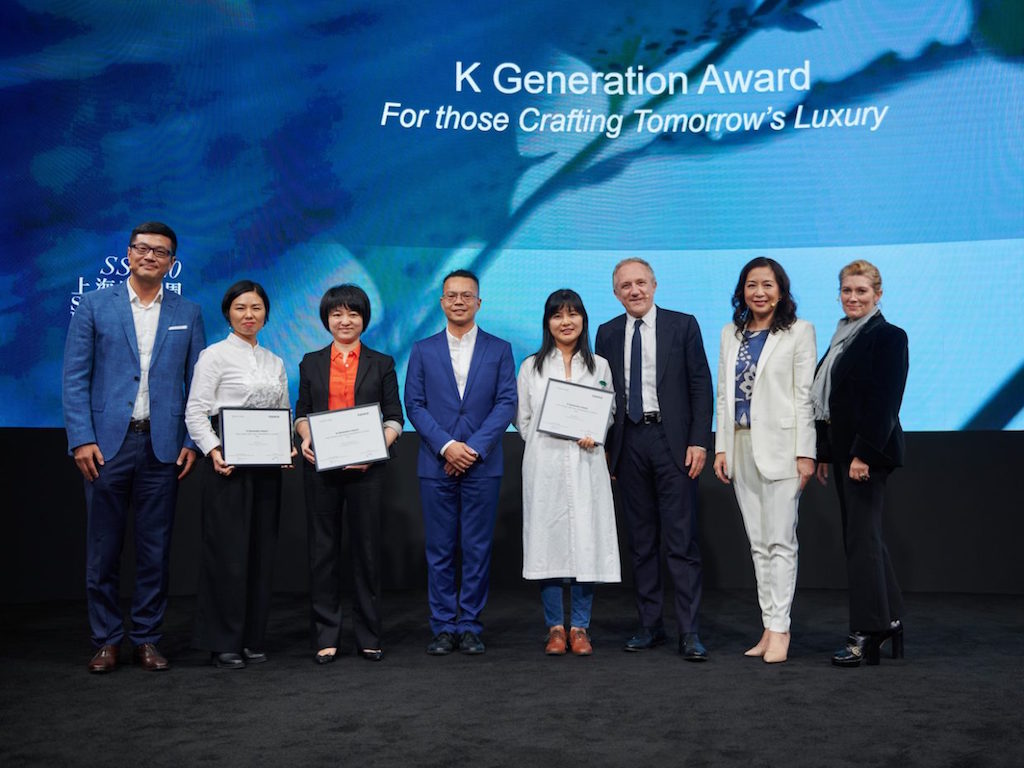3 Mins Read
Global luxury fashion group Kering recently hosted a conference on sustainable fashion during Shanghai Fashion Week, recognising eco-forward technological innovations in the Chinese fashion industry. As an international giant – managing big-names including Gucci, Balenciaga and Yves Saint Laurent – this initiative to promote global sustainability represents a recognition that the tide is turning for the traditionally polluting fashion industry. Brands can no longer afford to operate through a business-as-usual approach, but must seek to adopt greener and more sustainable practices in order to appeal to a more conscious consumer market and contribute to much-needed conservation efforts in the middle of our planet’s climate crisis.
At this year’s Shanghai Fashion Week, the French luxury fashion group Kering partnered up with Californian innovation centre Plug and Play to host a conference to discuss sustainability in the fashion industry. The talk was joined by multiple industry leaders including Shaway Yeh, founder of creative sustainability consulting agency YehYehYeh, Chief Sustainability Officer of Kering Marie-Claire Deveu and Dean of Fashion and Parsons School of Design Burak Cakmak.
Notably, the conference saw a reaffirmation of Kering’s sustainability commitments, with CEO François Pinault remarking that the group aims to reduce its carbon footprint by 40% by 2025. Already, several brands under the group have taken strides to reduce its environmental impact, with Gucci recently achieving carbon-neutrality throughout its supply chain and operations recently.
One of the key questions being discussed was the role of China in the sustainability movement. In particular, the conference spotlighted three Chinese tech startups that were working on promoting a sustainable textile supply chain. The first, Melephant, provides natural dyes made from organic waste. Heyuan, the second company, was also awarded for their innovative water treatment system for prints and dyes. Finally, FeiLiu Technology was applauded for their use of artificial intelligence (AI) to optimise supply chains to limit overproduction.
Showcasing and celebrating these Chinese tech startups working on sustainable solutions for the industry reflects a broader recognition that businesses are now responding to greater demand for responsible planet-friendly practices, and that the Chinese market will have a big role to play in this push.
Commenting on the strategic choice to host the conference in Shanghai and feature Chinese startups, Kering CEO Pinault said: “China today is not only the most important supplier of raw materials for the fashion industry, it’s also the most important market…So inside the country we have altogether the consumers, the producers, the government, which [are all] willing to move progressively towards sustainability.”
Indeed, the Chinese market will prove pivotal if the global fashion industry wishes to become more environmentally responsible in its production and consumption and meet UN Global Goals. Recent predictions by the WEF have suggested that the rental and resale economy in China will take up over a fifth of the country’s GDP by as early as 2025.
In Hong Kong, sustainable fashion has taken off in the last few years, with the opening of resale warehouse HULA, Lane Crawford backed and blockchain-powered circular pop up concept LUXARITY, and the storefront launch of preloved childrenswear platform RETYKLE.
This sustainability conference is indicative of a broader global shift in the fashion industry, where all brands regardless of price point are striving for more eco-friendly practices – especially in order to appeal to conscious younger consumers.
In recent years, we have seen fast fashion take a big hit from figures highlighting its role in global pollution – 92 million tonnes of landfill waste, 20% of global water wastage and 10% of greenhouse gas emissions, according to the Copenhagen Fashion Summit.
But expensive, upmarket luxury brands, such as those under the Kering group, are also exposed for their environmental impact and are scrambling to appear more sustainable. As noted by Burak Cakmak at the conference, it is “ultimately…about consumer behaviour..that is going to lead to providing sustainable initiatives within the industry.”
Lead image courtesy of Kering.




